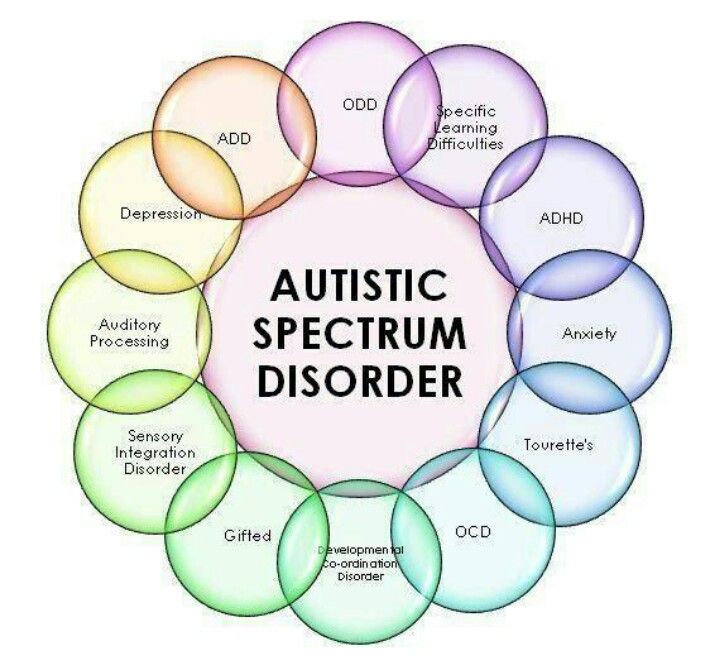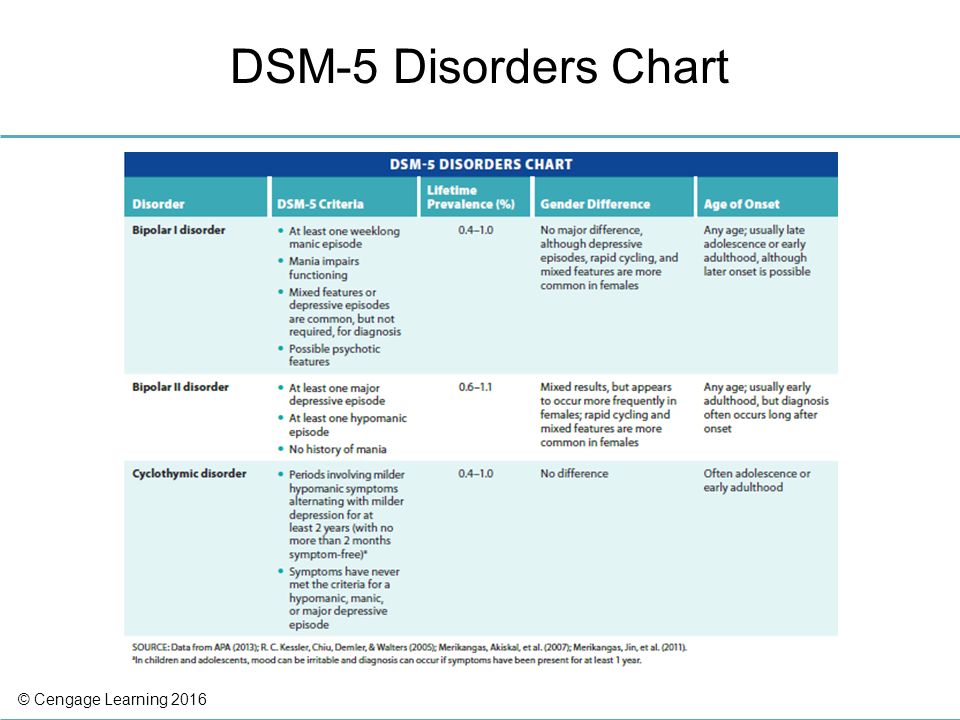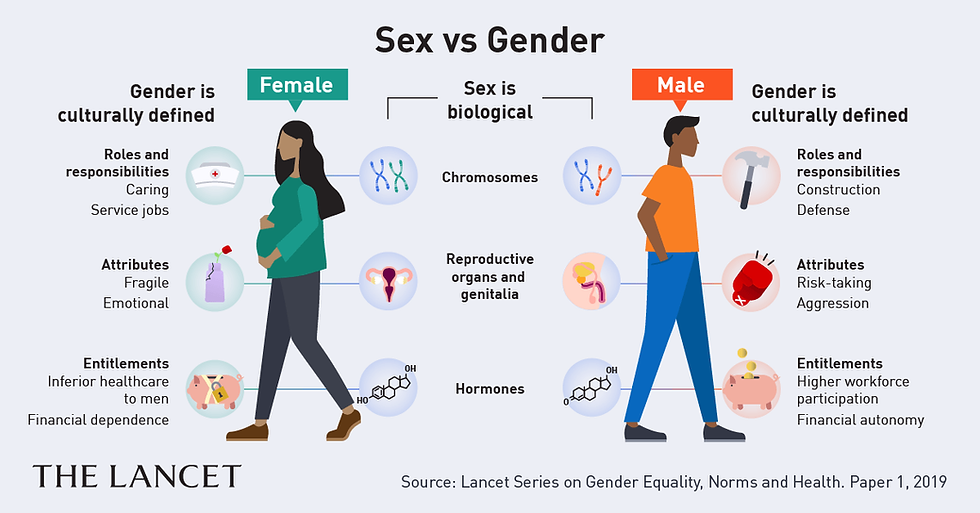Personality disorder perfectionism
How Perfectionism Drastically Differs From OCD
Perfectionism and obsessive-compulsive disorder (OCD) are two distinct concepts, despite some similarities. OCD is a psychological disorder that is associated with anxious thoughts, along with compulsive actions to reduce anxiety. Perfectionism, on the other hand, is a personality trait that can cause individuals to be extremely organized and pay close attention to detail. OCD isn’t caused by perfectionism; however, it can co-occur with obsessive-compulsive personality disorder which shares certain traits with perfectionism. Treatment for OCD typically involves a combination of antidepressant medications and psychotherapy; meanwhile, obsessive-compulsive personality disorder is treated through long-term psychotherapy. If either perfectionism or OCD negatively affects one’s relationships or professional life, it’s important to seek help.
Do you obsessively organize the clothes in your closet by color? Keep a color-coordinated calendar of all your upcoming tasks including daily habits such as eating and sleeping? Do you find that you are the primary organizer and planner among your co-workers, circle of friends and family members? Maybe you are detailed oriented and may even be a perfectionist but many individuals who have these characteristics often self-diagnose themselves with OCD. Perfectionism itself can be motivating and can push individuals to accomplish a lot however when an individual sets too high of expectations of themselves, it can create a sense of failure, and criticism resulting in low self-esteem and threatened relationships. Obsessive-compulsive disorder is often thrown around lightheartedly in conversations and is even joked upon in regards to individuals who adopt perfectionistic quirks however OCD is a mental health disorder that differs drastically from an individual who is overly organized or demonstrates perfectionism in many aspects of his/her life. Obsessive-compulsive disorder is ego dystonic meaning that it is bothering the individual and does them a disservice whereas perfectionism is ego-syntonic meaning that it serves the individual and adds more order to his/her life. Individuals with OCD are well aware that their thoughts and actions are problematic whereas those who are perfectionists welcome their orderliness.
Does perfectionism cause obsessive-compulsive disorder?
Individuals who have OCD are pre-occupied with obsessive thoughts that are anxiety driven. These obsessive thoughts are carried out through compulsive actions to relieve anxiety. OCD is therefore tightly linked to anxiety but is no longer classified as an anxiety disorder in the DSM and is not directly linked to perfectionism. The specific cause for OCD is still being studied and is not clear however many experts believe abnormalities cause OCD in neurotransmitters such as serotonin and dopamine and hence why treatment with selective serotonin reuptake inhibitors (SSRIs) are often used to treat this disorder.
These obsessive thoughts are carried out through compulsive actions to relieve anxiety. OCD is therefore tightly linked to anxiety but is no longer classified as an anxiety disorder in the DSM and is not directly linked to perfectionism. The specific cause for OCD is still being studied and is not clear however many experts believe abnormalities cause OCD in neurotransmitters such as serotonin and dopamine and hence why treatment with selective serotonin reuptake inhibitors (SSRIs) are often used to treat this disorder.
Is perfectionism a personality disorder?
Perfectionism is considered a personality trait and is not considered a personality disorder of its own however perfectionism is a trait often seen in obsessive-compulsive personality disorder which is similar to OCD except that the individual is fully supportive of this behavior; identical to individuals who are perfectionists. Specifically, an obsessive-compulsive personality disorder is characterized by orderliness, perfectionism and excessive devotion to work to the point that individuals exclude hobbies and friendships. The individual is often detail-oriented, and when things do not work out in their favor, they can quickly become angry. They may be so obsessed with orderliness, rules, organization, lists, and schedule that they often become so pre-occupied that cannot complete the task at hand. Additionally, they regularly practice hoarding behaviors, unable to spend money they earn or give away used items and clothing. The individual prefers this lifestyle and usually does not see this as a disorder but instead as a productive way to live.
The individual is often detail-oriented, and when things do not work out in their favor, they can quickly become angry. They may be so obsessed with orderliness, rules, organization, lists, and schedule that they often become so pre-occupied that cannot complete the task at hand. Additionally, they regularly practice hoarding behaviors, unable to spend money they earn or give away used items and clothing. The individual prefers this lifestyle and usually does not see this as a disorder but instead as a productive way to live.
Treatment for Perfectionism
An obsessive-compulsive personality disorder is treated with long-term psychotherapy however individuals with both perfectionism and obsessive-compulsive personality disorder usually do not seek help because they are happy with their lifestyle, let alone believe anything is wrong. However, when perfectionism becomes problematic, the individual is usually the last one to know, and it is often their marriage or professional life that has suffered the most. Individuals with obsessive-compulsive disorder are best treated with a combination of antidepressants, specifically selective serotonin reuptake inhibitors and psychotherapy.
Individuals with obsessive-compulsive disorder are best treated with a combination of antidepressants, specifically selective serotonin reuptake inhibitors and psychotherapy.
Perfectionism: Symptoms, Treatment, and Prevention
Perfectionism: Symptoms, Treatment, and Prevention- Health Conditions
- Featured
- Breast Cancer
- IBD
- Migraine
- Multiple Sclerosis (MS)
- Rheumatoid Arthritis
- Type 2 Diabetes
- Articles
- Acid Reflux
- ADHD
- Allergies
- Alzheimer's & Dementia
- Bipolar Disorder
- Cancer
- Crohn's Disease
- Chronic Pain
- Cold & Flu
- COPD
- Depression
- Fibromyalgia
- Heart Disease
- High Cholesterol
- HIV
- Hypertension
- IPF
- Osteoarthritis
- Psoriasis
- Skin Disorders and Care
- STDs
- Featured
- Discover
- Wellness Topics
- Nutrition
- Fitness
- Skin Care
- Sexual Health
- Women's Health
- Mental Well-Being
- Sleep
- Product Reviews
- Vitamins & Supplements
- Sleep
- Mental Health
- Nutrition
- At-Home Testing
- CBD
- Men’s Health
- Original Series
- Fresh Food Fast
- Diagnosis Diaries
- You’re Not Alone
- Present Tense
- Video Series
- Youth in Focus
- Healthy Harvest
- No More Silence
- Future of Health
- Wellness Topics
- Plan
- Health Challenges
- Mindful Eating
- Sugar Savvy
- Move Your Body
- Gut Health
- Mood Foods
- Align Your Spine
- Find Care
- Primary Care
- Mental Health
- OB-GYN
- Dermatologists
- Neurologists
- Cardiologists
- Orthopedists
- Lifestyle Quizzes
- Weight Management
- Am I Depressed? A Quiz for Teens
- Are You a Workaholic?
- How Well Do You Sleep?
- Tools & Resources
- Health News
- Find a Diet
- Find Healthy Snacks
- Drugs A-Z
- Health A-Z
- Health Challenges
- Connect
- Breast Cancer
- Inflammatory Bowel Disease
- Psoriatic Arthritis
- Migraine
- Multiple Sclerosis
- Psoriasis
Medically reviewed by Timothy J. Legg, PhD, PsyD — By David Heitz — Updated on December 24, 2017
Legg, PhD, PsyD — By David Heitz — Updated on December 24, 2017
What is perfectionism?
People with perfectionism hold themselves to impossibly high standards. They think what they do is never good enough.
Some people mistakenly believe that perfectionism is a healthy motivator, but that’s not the case. Perfectionism can make you feel unhappy with your life. It can lead to depression, anxiety, eating disorders, and self-harm. Eventually, it can also lead you to stop trying to succeed. Even mild cases can interfere with your quality of life, affecting your personal relationships, education, or work.
Perfectionism can affect young people as well as adults. Children and teenagers are often driven to be overachievers in their schoolwork as well as activities such as sports, clubs, community service, and jobs. This can lead to an obsession with success. Ultimately, it can interfere with the ability to achieve it.
A desire to achieve is healthy. But an irrational desire to always be perfect can cause problems.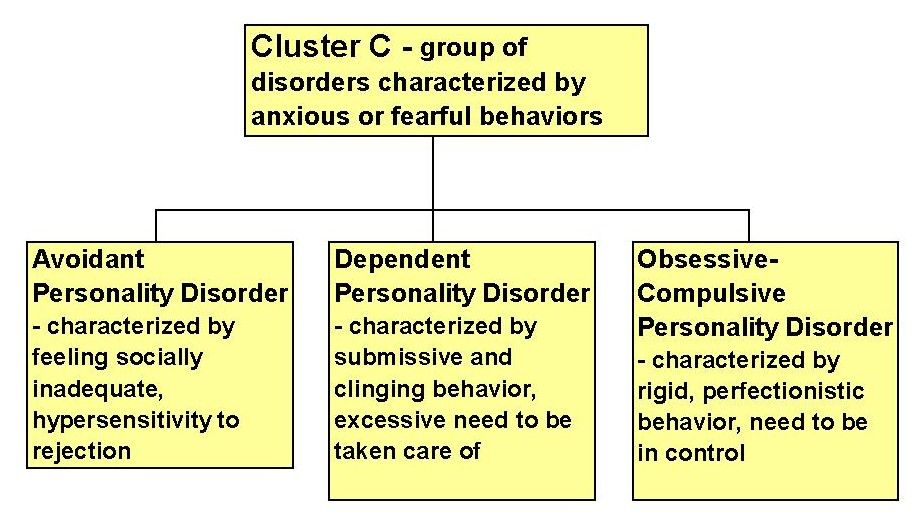
You may be experiencing perfectionism if you:
- feel like you fail at everything you try
- procrastinate regularly — you might resist starting a task because you’re afraid that you’ll be unable to complete it perfectly
- struggle to relax and share your thoughts and feelings
- become very controlling in your personal and professional relationships
- become obsessed with rules, lists, and work, or alternately, become extremely apathetic
Perfectionism’s cause isn’t always clear. It’s often a learned behavior. People with perfectionism believe that they’re valuable only because of what they achieve or what they do for other people.
Academic settings can bring out perfectionism in young people.
As part of your perfectionism, you may strive to hide your personal problems. This can make it harder to treat. But remember, it’s important to seek help when you need it. If perfectionism is interfering with your ability to live a full and happy life, speak to your doctor or a mental health professional.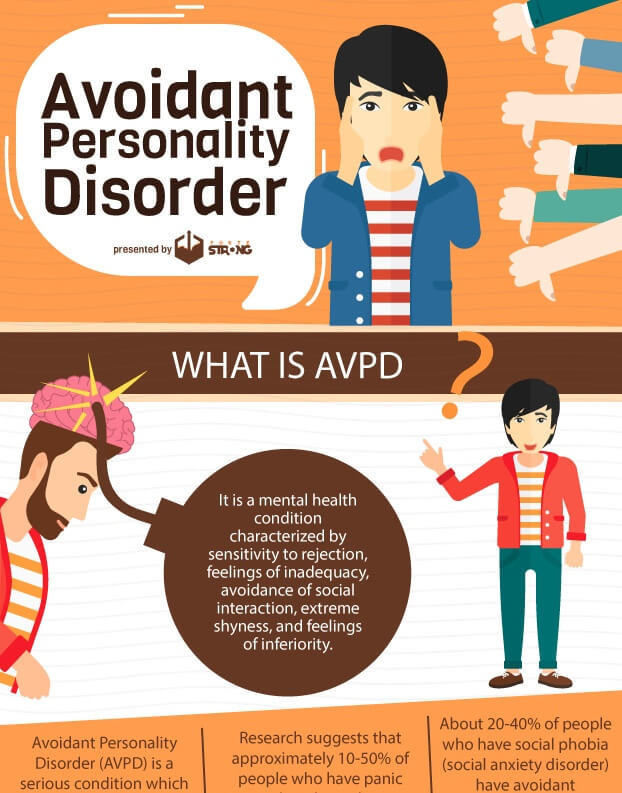 If you’re thinking of harming yourself or others, seek emergency medical attention.
If you’re thinking of harming yourself or others, seek emergency medical attention.
Therapy, especially cognitive-behavioral therapy, may help you learn new ways of thinking about your goals and achievements. A therapist may help address your need for acceptance or reduce your reactions to negative feedback.
Online therapy options
Read our review of the best online therapy options to find the right fit for you
Was this helpful?
To lessen perfectionism, it may help to:
- set realistic, attainable goals
- break up overwhelming tasks into small steps
- focus on one activity or task at a time
- acknowledge that everyone makes mistakes
- recognize that most mistakes present learning opportunities
- confront fears of failure by remaining realistic about possible outcomes
If you suspect that perfectionism is interfering with your well-being, speak to your doctor. They may recommend therapy or other strategies to help manage your symptoms.
Last medically reviewed on July 25, 2016
How we reviewed this article:
Healthline has strict sourcing guidelines and relies on peer-reviewed studies, academic research institutions, and medical associations. We avoid using tertiary references. You can learn more about how we ensure our content is accurate and current by reading our editorial policy.
- Benson, E. (2003, November). The many faces of perfectionism. Monitor on Psychology, 34(10), 18
apa.org/monitor/nov03/manyfaces.aspx - Besser, A., Flett, G. L., & Hewitt, P. L. (2004, December). Perfectionism, cognition, and affect in response to performance failure vs. success. Journal of Rational-Emotive and Cognitive-Behavior Therapy, 22(4), 297-324
link.springer.com/article/10.1023%2FB%3AJORE.0000047313.35872.5c#page-1 - The problem of perfectionism. (2015, November 21)
healthychildren.org/English/ages-stages/young-adult/Pages/The-Problem-with-Perfectionism. aspx
aspx
Our experts continually monitor the health and wellness space, and we update our articles when new information becomes available.
Current Version
Dec 24, 2017
Written By
David Heitz
Edited By
Frank Crooks
Jul 25, 2016
Medically Reviewed By
Timothy J. Legg, PhD, PsyD
Share this article
Medically reviewed by Timothy J. Legg, PhD, PsyD — By David Heitz — Updated on December 24, 2017
Read this next
Obsessive-Compulsive Personality Disorder (OCPD)
Medically reviewed by Timothy J. Legg, PhD, PsyD
Obsessive-compulsive personality disorder (OCPD) is a personality disorder that’s characterized by extreme perfectionism, order, and neatness.
READ MORE
Personality Disorder
Medically reviewed by Jeffrey Ditzell, DO
Personality disorders are a group of mental health conditions that are characterized by inflexible and atypical patterns of thinking, feeling, and…
READ MORE
Maladaptive Daydreaming
Medically reviewed by Marney A.
 White, PhD, MS
White, PhD, MSMaladaptive daydreaming involves complex daydreams that interfere with daily life. They may occur with ADHD and other conditions. Learn more.
READ MORE
Obsessive Love Disorder
Medically reviewed by Timothy J. Legg, PhD, PsyD
Obsessive love disorder (OLD) refers to a condition where you become obsessed with one person you think you may be in love with.
READ MORE
Understanding Atelophobia, the Fear of Imperfection
Medically reviewed by Timothy J. Legg, PhD, PsyD
Atelophobia is the fear of being imperfect. This phobia can interrupt daily life and functioning. We explain what it is, symptoms, treatment, and more.
READ MORE
Trauma-Related Disorders: More Than PTSD
Trauma can affect the human mind in many ways and cause a variety of psychological disorders.
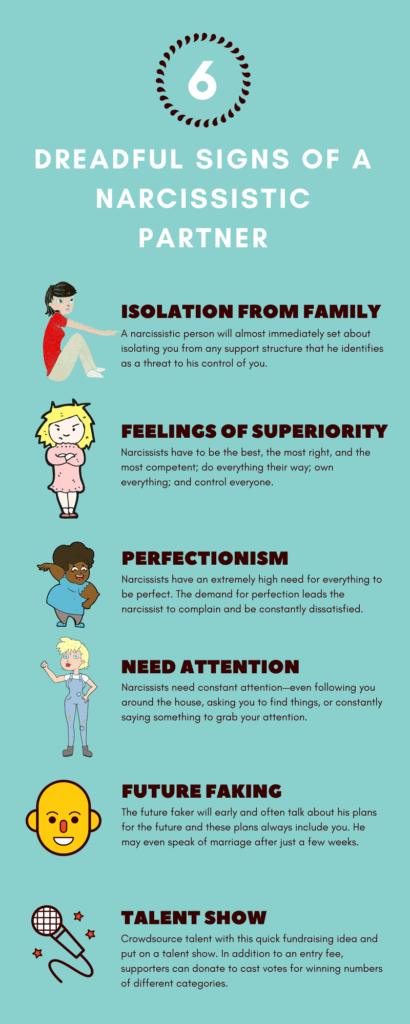 Let's look at the different types and treatments:
Let's look at the different types and treatments: READ MORE
9 Best Online Psychiatry Services for 2023
If you’re considering meeting with a psychiatrist but prefer remote visits, online psychiatry may be right for you. Here are our top picks for online…
READ MORE
What Is Self-Harm?
Medically reviewed by Debra Rose Wilson, Ph.D., MSN, R.N., IBCLC, AHN-BC, CHT
There are many types of self-harm, but all are intentional actions of harming and punishing yourself.
READ MORE
Understanding Addiction As a Mental Health Condition
Medically reviewed by Debra Rose Wilson, Ph.D., MSN, R.N., IBCLC, AHN-BC, CHT
Addiction usually refers to a substance use disorder, which is a recognized mental health condition that's treatable.

READ MORE
Inattentional Blindness: What You Should Know
This form of vision loss is also known as perceptual blindness. It involves not noticing people, objects, or events within your line of vision because…
READ MORE
From perfectionism to madness, or Why perfection drives you crazy
The desire to bring everything to perfection, or, in other words, perfectionism is a mental disorder, doctors say. Being taller, more successful and stronger does not mean being happier, psychotherapist Aina Gromova told correspondent of MIR 24 . Often a perfectionist does not strive to make the world a better place, as he thinks, but only wants to see it the way he imagined it in his head. For the sake of the desire to realize his ideal, a perfectionist torments himself and those around him.
“The degree of perfectionism can be very different. There are people who reach pathology in manifestations of perfectionism, and there are those in whom this trait is expressed to a small extent. They can stop in time. Perfectionism itself is the syndrome of an excellent student, the desire to do everything better than others. Perfectionism can be considered a violation,” says Gromova.
There are people who reach pathology in manifestations of perfectionism, and there are those in whom this trait is expressed to a small extent. They can stop in time. Perfectionism itself is the syndrome of an excellent student, the desire to do everything better than others. Perfectionism can be considered a violation,” says Gromova.
This is an emotional vulnerability of a person, which does not benefit either himself or others, the doctor believes. “Such a person is not satisfied with the result, instead he feels constant tension and excitement. Due to low self-esteem, he has increased anxiety. Actually, with such manifestations, it makes sense to consult a specialist, ”the psychotherapist comments.
In turn, psychologist Mikhail Khors is sure that blind adherence to an idealistic perfectionist system of views can lead to a disorder called neurotic patho-perfectionism. “This is a neurotic form in which a person blindly and rigorously follows perfectionism,” the doctor explains.
“It is important to distinguish the pursuit of excellence from the requirement that it be mandatory. These are different things. You can be a perfectionist, but at the same time understand that you will never achieve the ideal in your life, but still strive for it. And this desire is very important in the development of the human personality. Even in religious and philosophical directions they say that all our life we strive for an ideal - for God, but God can be reached only after death. Go, develop, strive, but do not be discouraged if something does not work out for you. You are a person, not a super-being, who must reach perfection without fail, ”says Michali Hors.
In general, perfectionists tend to be more emotional because they are very demanding and not ready to accept the world as it is, the expert explains. “Perfectionism is a system of beliefs that develops in the process of becoming a person, most often it is instilled in the family. Parents are trying to compensate for their shortcomings with the achievements of their children,” says Khors.
“These beliefs are normal at a certain stage of personality development. For example, in adolescence. And then you have to grow up. And when a person grows up, he understands that the ideal does not exist. And someone hangs at the level of the teenage stage of personality development and all his life he beats his head against the wall. That is, this stage is normal for a teenager, another question is why a forty-year-old person cannot accept the fact that the world is not ideal. In such cases, you already need to go to a psychologist, ”the specialist notes.
WHERE DOES PERFECTIONISM COME FROM?
The first difficulty a perfectionist faces is polarized thinking. He agrees to everything or nothing. This kind of striving for perfection is called dichotomous perfectionism.
“Such thinking gives a person a certain vision of the development of events - “either I will do everything perfectly, the way I imagine it, or not at all.” If the result of the activity does not meet his expectations, it means that he will continue to improve his activities, perhaps he will miss all the deadlines and deadlines, he will never do it, but nevertheless he will waste time, effort and nerves.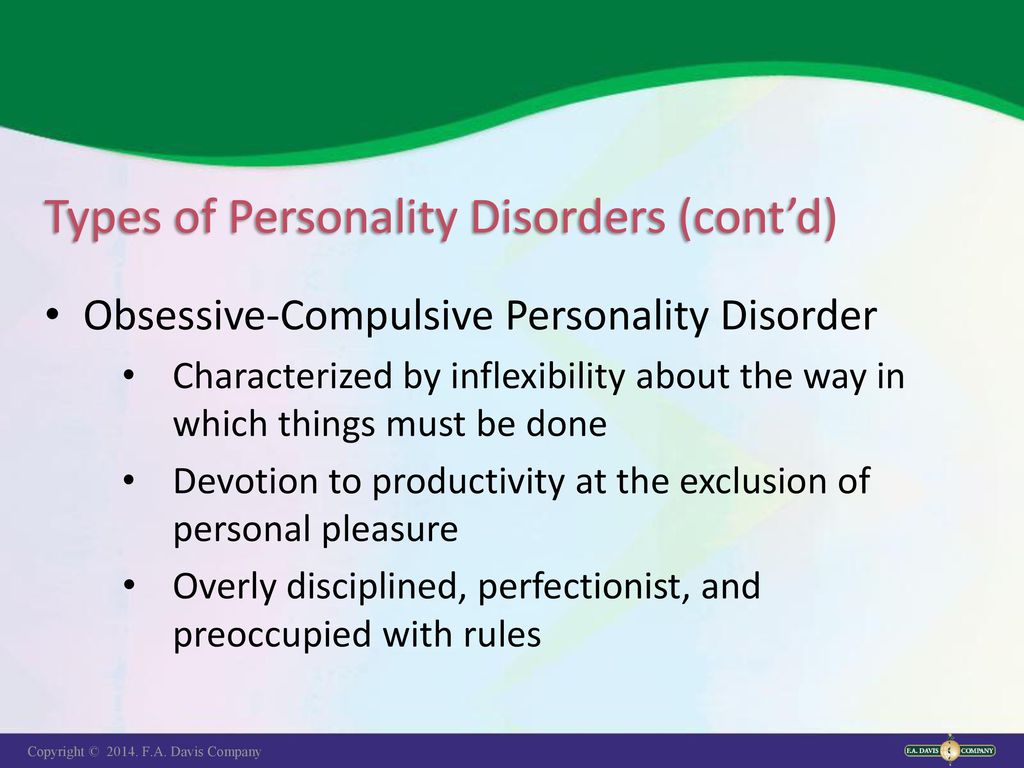 Such a person makes high demands, both to himself and to others, ”explains Gromova.
Such a person makes high demands, both to himself and to others, ”explains Gromova.
A dichotomous perfectionist lives in constant tension, he compares himself with others, experiences any failures and mistakes painfully, and is never satisfied with the results of his work. In practice, a person himself devalues his abilities and loses productivity.
“You can't fit everything into a certain pattern. It is impossible to say unambiguously how good and how bad. But any business can be improved indefinitely. The neurotic tendency of people - to improve everything in a row, not being able to stop at the right moment, is fatal, as it is unproductive in the implementation of any business. In addition, it brings the perfectionist very great emotional difficulties. Such a person is forced to constantly be in emotional stress. He develops a painful addiction to grades, he suffers from criticism or lack of attention, ”added the psychotherapist.
Perfectionists are not born, they are made, assures our interlocutor. In most cases, perfectionism is instilled by parents as early as childhood, in some cases teachers and schools leave their mark.
In most cases, perfectionism is instilled by parents as early as childhood, in some cases teachers and schools leave their mark.
“A child finds himself in an environment where there are increased demands on him. This often happens with an authoritarian parenting style, when parents evaluate him only in connection with the results of his activities, constantly scold him for the slightest flaws and love him for good results. The child understands that in order to be loved, everything must always be done to "five". On the one hand, this is good. Such a child learns better than others, his room is always in order. But the level of emotional stress with which he lives, in adulthood, turns into psychosomatic disorders, various neuroses, bad relationships with loved ones and the team, loneliness. A perfectionist fights windmills. But he doesn’t get the level of love that could make him calm, ”explains Gromova.
HOW TO BECOME A HAPPY PERFECTIONIST?
But even a perfectionist has a chance to become happy without having to completely change himself.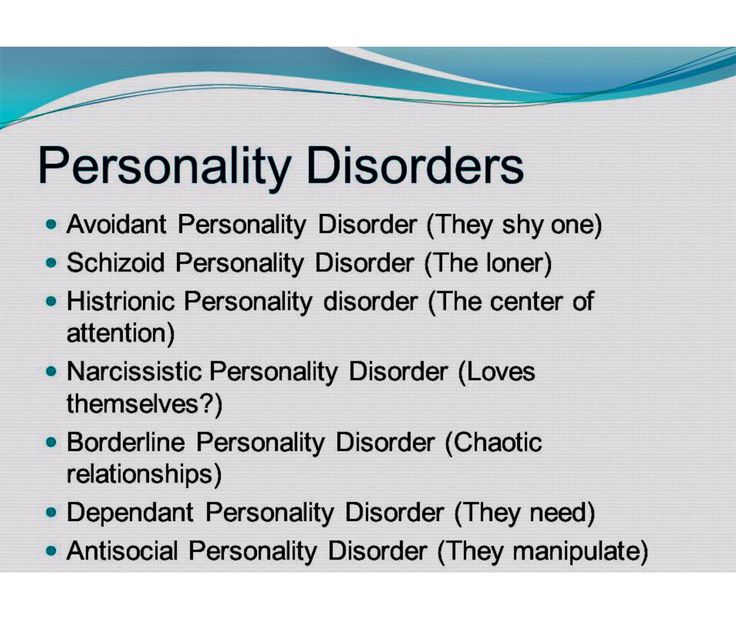 Part of the medical community in the scientific community today divides perfectionism into negative and positive. To change a minus to a plus, you need to add rational grain and sanity to your leadership qualities and excitement. In this case, you will turn from a “driven horse” into a successful person.
Part of the medical community in the scientific community today divides perfectionism into negative and positive. To change a minus to a plus, you need to add rational grain and sanity to your leadership qualities and excitement. In this case, you will turn from a “driven horse” into a successful person.
“Positive perfectionism is a healthy human desire to develop and correct mistakes. Such a person is scrupulous in every detail and is ready to work to an excellent result, while he has a desire to move on. A positive perfectionist shows leadership qualities, he is efficient, active, he has internal motivation to achieve the goal. He does not need "kicks", but wants to do everything well himself.
A positive perfectionist employee is the dream of any leader. Such people are promoted up the career ladder quite deservedly. In this case, the pursuit of excellence is based on awareness and sanity. Such a person will have an adequate level of claims, he will correctly assess his abilities.
In work, he is passionate, but focused on achieving goals, ”said the expert.
It's easy to tell a positive perfectionist from a negative one. The motivation of the latter is fear and failure. It constantly seems to him that he is not appreciated, and all comparisons always work in favor of others. Due to the fact that the negative perfectionist focuses on his failures, he lives in depression and constant stress. Therefore, parents also need to remember that too harsh upbringing creates a fear of uselessness in children. Any child needs to be told that mistakes and criticism are normal.
“A child should be loved just like that, and not for some deeds or good grades. Every child needs to be taught that mistakes are normal. It should not be compared with peers, all children are different and all have different abilities, as well as strengths and creative inclinations. Doing nothing is bad, but doing it to the point of exhaustion, improving your result, is also bad. It is best to find a compromise with yourself, realizing that any business must be completed on time. You need to give yourself an attitude - "I do it at a time, but I give it my best." It's important not to get hung up. Allow yourself to make mistakes. Remember - only the one who does nothing is not mistaken, ”concluded Gromova.
It is best to find a compromise with yourself, realizing that any business must be completed on time. You need to give yourself an attitude - "I do it at a time, but I give it my best." It's important not to get hung up. Allow yourself to make mistakes. Remember - only the one who does nothing is not mistaken, ”concluded Gromova.
In 2017, Canadian scientists from the University of Ontario concluded that 13 out of 15 different types of perfectionism show strong associations with suicidal thoughts and tendencies. They studied 11,700 people and concluded that perfectionists lock themselves into a constant circle of goals. At the same time, each new unattainable goal becomes a reason for disappointment and depressive thoughts. Also, most often, perfectionism, associated with the fear of not living up to the expectations of others, most strongly demonstrates persistent suicidal tendencies. The results of the study were published in the scientific journal Journal of Personality.
Diagnosis of anancaste personality disorder, treatment of perfectionism at the Allianz Central Medical Health Center
Anancaste (obsessive-compulsive, psychasthenic) personality disorder is a variant of a personality disorder characterized by increased anxiety and suspiciousness, fixation on details, perfectionism, rigidity of thinking, periodic obsessive thoughts (obsessions) and actions (compulsions).
It is necessary to distinguish between the concepts of "obsessive-compulsive personality disorder" and "obsessive-compulsive disorder". The first refers to the pathology of character development and has the distinctive features of personality disorders. The second term refers to a specific disease that can develop in any type of person.
Two conditions must be met for a diagnosis of anancaste personality disorder. First, the presence of general criteria for a personality disorder. Second, the presence of three or more of the following symptoms:
- Unreasonable anxiety and excessive caution are eternal torments of choice even when making simple and insignificant decisions.

- Maladaptive perfectionism is an excessive desire for perfection that interferes with the fulfillment of tasks. In pursuit of the ideal, the anancast "gets stuck" in the process, constantly postponing the completion of the case due to improvements and improvements to the already completed part of the work.
- Fixation on details and various ways of structuring (detailed lists, schedules, graphs, etc.)
- Extreme pedantry and adherence to social rules and conventions.
- Rigidity (stiffness) of thinking.
- Excessive conscientiousness and compulsion in work, because of which personal relationships (marital, friendly), leisure and recreation suffer.
- Refusal to cooperate or delegate one's duties to other people unless they are willing to do the job in exactly the same way.
- Presence of obsessive thoughts, impulses and actions. Actions can be simple stereotypes of gestures and facial expressions, such as sniffing, tics, "clicking" fingers; or more complex rituals, such as walking a certain intricate route every day, or wearing only certain clothes on a certain day of the week.
 It must be emphasized that these thoughts and actions are not the result of a purposeful choice and are weakly amenable to self-control. Situations of impossibility to perform the ritual give rise to the strongest anxiety in the anancaste.
It must be emphasized that these thoughts and actions are not the result of a purposeful choice and are weakly amenable to self-control. Situations of impossibility to perform the ritual give rise to the strongest anxiety in the anancaste.
Causes and differential diagnosis
Currently, anancaste personality disorder is believed to have a genetic predisposition. However, the leading factor is the social factor, when, starting from early childhood, the child is in a situation of increased pressure and demands with a simultaneous ban on the manifestation of certain emotions. By puberty, the psyche formed under such conditions already has stable symptoms of psychasthenic personality disorder.
It is important to understand
Although this disorder is not a disease, its symptoms are extremely difficult, if not impossible, to be consciously controlled. This is a deep, persistent deviation in personality development, due to which even seasoned, well-compensated people experience breakdowns, during which persuasion to "pull themselves together" and cope on their own is useless - at such moments, qualified help is simply needed.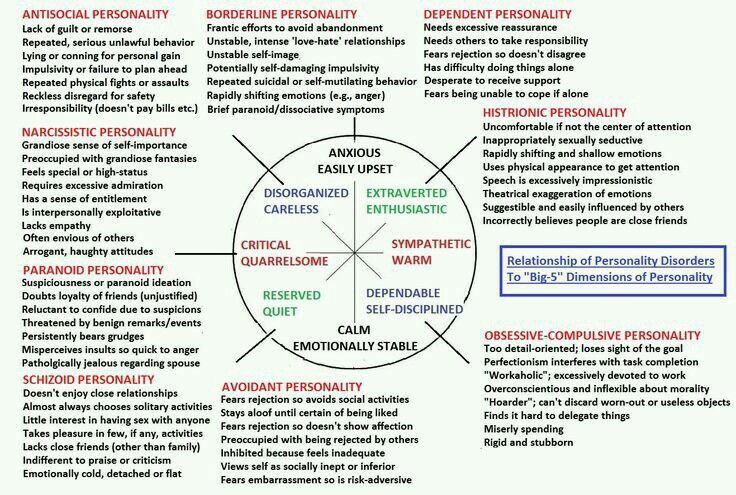
It is necessary to differentiate psychasthenic personality disorder, first of all, from obsessive-compulsive disorder - a disease that has very similar symptoms, but fundamentally different dynamics, prognosis and treatment tactics. He also has many similar symptoms with autism, schizophrenia, epileptoid character accentuation, generalized anxiety disorder, organic brain pathology. To establish the correct diagnosis and prescribe treatment, taking into account the individual characteristics of the patient, it is necessary to contact a specialist.
Treatment and prognosis
The prognosis for anancaste disorder is favorable. With proper treatment, it is possible to achieve stable compensation, during which anancasts live a full life.
Lack of treatment is fraught with frequent breakdowns, during which restraining mechanisms are “turned off” and emotions hidden for a long time break out to the surface like an awakened volcano.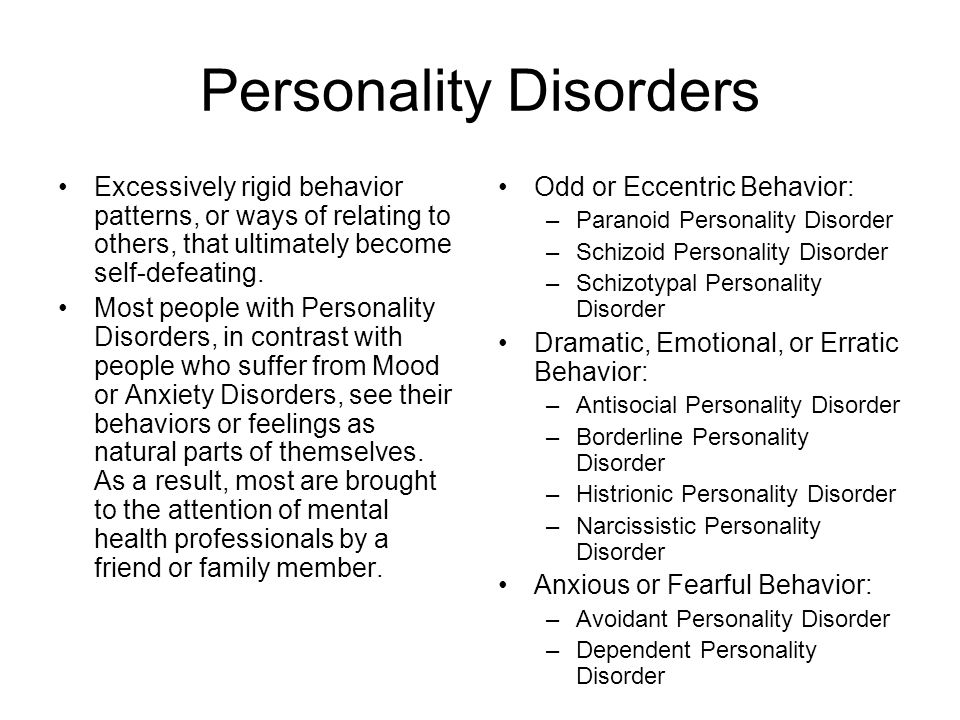 During these periods, there may be a need for drug therapy: neuroleptics, anxiolytics, antidepressants. The basis for this type of personality disorder is psychotherapeutic treatment.
During these periods, there may be a need for drug therapy: neuroleptics, anxiolytics, antidepressants. The basis for this type of personality disorder is psychotherapeutic treatment.
In a state of mental compensation, people with an anancaste personality disorder have high professional suitability. They are considered valuable and reliable employees, experts in their field. However, they achieve labor success at the expense of family and friendly relations. The reason for this is their pathological perfectionism, which extends not only to work, but also to personal relationships. High demands and little time for family and friends often jeopardize the relationship anancasters have with their loved ones. Therefore, in the course of maintenance therapy for psychasthenic personality disorder, one often has to solve the problem: “How to treat perfectionism?”. For this, individual psychotherapy, namely psychoanalysis, is successfully used, with the help of which it is possible to correct dysfunctional manifestations, make them more flexible and adaptive.
